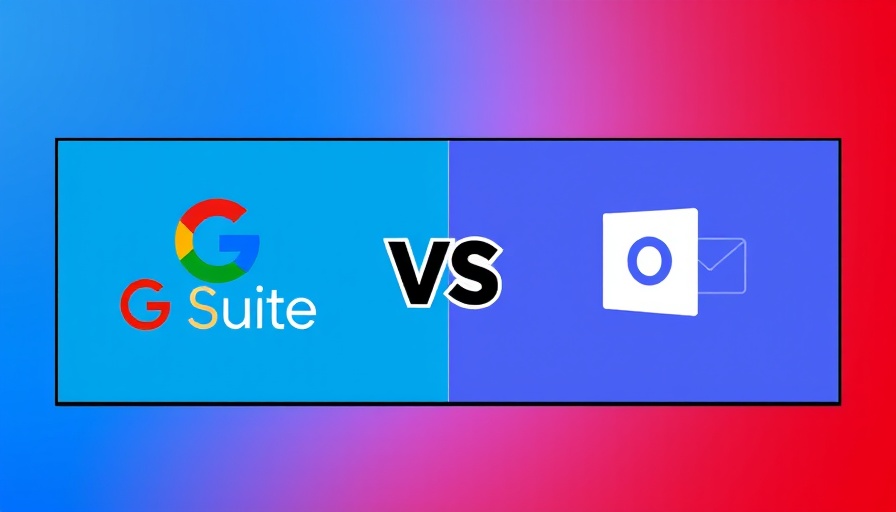
Which Email Platform is Right for Your Business?
In the modern business landscape, effective communication tools are essential for growth and collaboration. Two giants in this space, Gmail and Outlook, offer robust features catering to different business needs. As we look towards 2025, understanding their strengths will help small business owners and managers make the best choice.
Gmail: The Collaborative Powerhouse
Gmail, via Google Workspace, has gained popularity chiefly due to its real-time collaboration capabilities. Ideal for teams working remotely, Gmail allows for seamless sharing of documents, spreadsheets, and calendars. Its user-friendly interface ensures even beginners can navigate with ease. Features such as smart compose and built-in chat facilitate efficient communication, making it perfect for dynamic teams.
Essential tools like Google Meet further enhance its collaborative functionality, enabling video conferencing without needing additional software. Plus, with month-to-month billing options, it offers flexibility for businesses looking to scale.
Outlook: The Robust Business Solution
In contrast, Outlook, as part of Microsoft 365, shines when it comes to advanced tools and automation. For businesses with specific needs—like heavy email storage and integrated calendar features—Outlook provides a comprehensive package. Its sophisticated design and organizational abilities aid users in managing complex schedules efficiently.
Outlook's integration with other Microsoft Office applications enhances its utility, making tasks like report generation and data analysis streamlined for users. Furthermore, as cybersecurity threats escalate, Outlook's enterprise-grade security measures are a solid reassurance for businesses handling sensitive information.
Key Comparisons to Consider
When making the choice between Gmail and Outlook, consider your team’s workflow. If real-time collaboration is paramount, Gmail is hard to beat. On the other hand, for those who require powerful features and customization, Outlook emerges as the winner. Both platforms are widely acknowledged as the best business email providers globally, ensuring reliable performance.
The Role of AI in Business Emails
As we usher in 2025, artificial intelligence is set to redefine how businesses approach email communication. Tools like Google’s AI-driven features in Gmail aim to enhance productivity. Similarly, Microsoft is developing AI capabilities in Outlook to automate and streamline tasks such as sorting emails or scheduling appointments. Businesses should be on the lookout for these innovations as they will significantly impact these platforms
What’s Right for Your Business?
Ultimately, choosing between Gmail and Outlook boils down to your business needs and user preferences. Both platforms are designed to foster productivity, yet their unique features cater to distinct types of teams. Understanding these nuances can empower small business owners to make informed decisions that align with their operational goals.
Looking Ahead: The Future of Business Communication Tools
As technology evolves, the landscape of business communication tools will also change. Both Gmail and Outlook are likely to continue enhancing their offerings to meet customer demands. Future users can expect increased integration with other essential software, enhanced AI functionalities, and even more robust security protocols. Stay tuned to these developments to ensure you’re leveraging the best tools available.
If you’re ready to boost your business communication, consider evaluating Gmail and Outlook further. Understanding these platforms' capabilities will help you maximize efficiency and connection within your teams.
 Add Row
Add Row  Add
Add 




Write A Comment